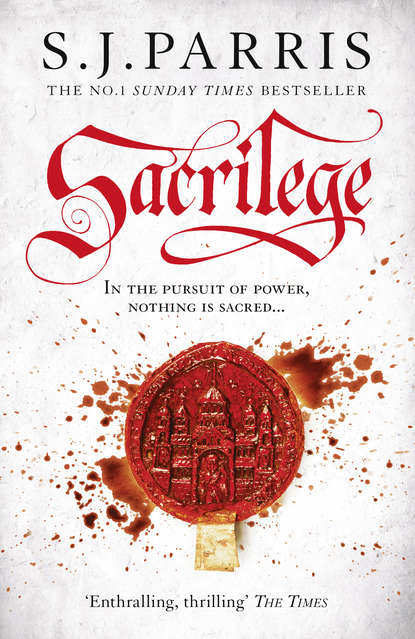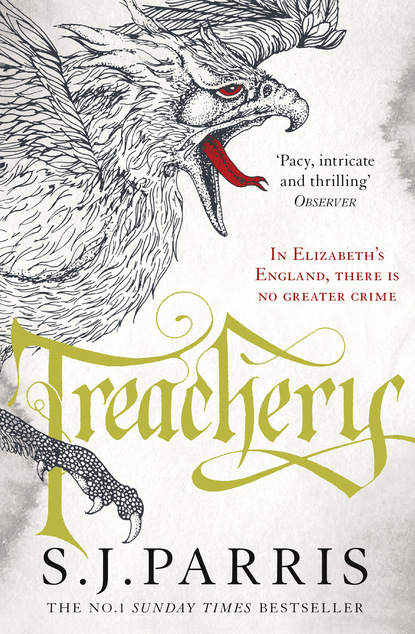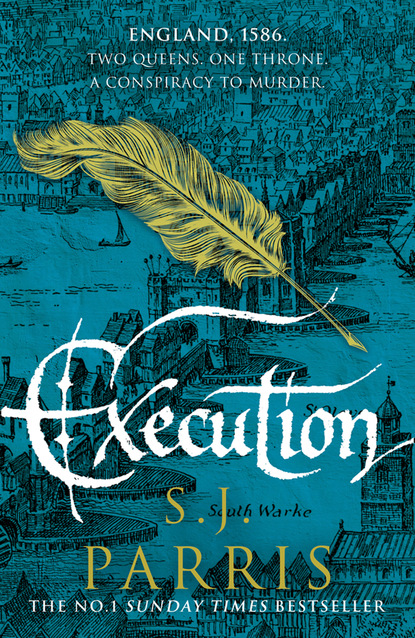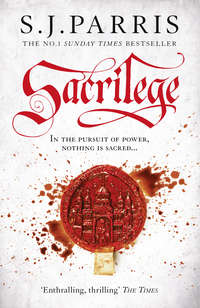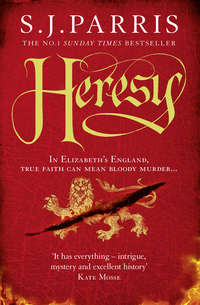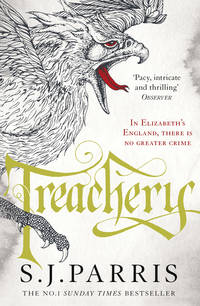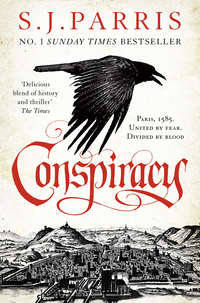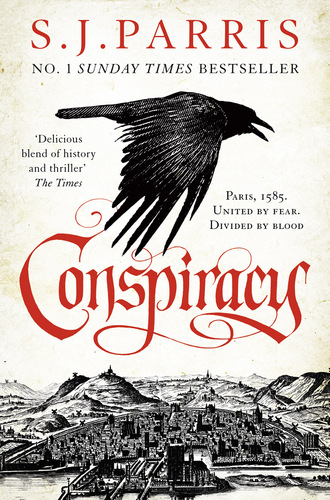
Полная версия
Conspiracy
Henri held out his hand so that I could bow and kiss his signet ring, a gentle reminder of his power to command. ‘One last thing,’ he said, pausing in the doorway. ‘My mother’s putting on one of her grand entertainments next Friday. Improve morale. If our popularity’s flagging, put on a show – you know what she’s like. Remind people of the old days. You must come.’
‘I thought I couldn’t be seen at court?’
‘Ah, but that’s the beauty of it – you won’t be. It’s a masked ball. Everyone will be in costume, faces hidden, no one will have the faintest idea who you are. Say you’ll come. Her women will perform too, if you need more persuading. I’d wager you don’t see anything like that at Elizabeth’s court.’ He poked the tip of his tongue between his teeth and wiggled it, an impish glitter in his eyes.
I could think of few places I would feel more exposed than the Tuileries palace during a masked ball, but the door had closed behind him and the key turned before I could protest. His departure seemed to suck all the force from the air; I felt my body sag with the weight of my tiredness. If the guards had allowed me, I would have curled up in a corner of the stone staircase and slept right there.
The ghost of Henri’s perfume followed me down the stairs. I left feeling deeply uneasy on several counts, hoping that I had not just made a pact to disguise a murder for my own advantage.
FOUR
I woke late the next morning, opening my eyes to a dusty grey light with a lingering sense of dread. Easing myself on to my elbows, I registered the bruises along my shoulder and hip from my plunge the day before, but it took a moment longer for my mind to struggle through the fog of sleep until I could be sure that I had not dreamed my nocturnal audience with the King and its unwelcome conclusion.
So she had fled to Paris, as I had suspected. Sophia Underhill, the woman I had known in Oxford and Canterbury. The King was right; she had bested me, and the memory of it still burned. Like a fool, I had thought myself proof against the wiles of women; the self-discipline I had learned in thirteen years as a Dominican served me well enough to withstand the cynical and obvious seductresses of the French court, but nothing had prepared me for a woman like Sophia. Educated, spirited, hungry for life, knowledge, independence, she had found herself ceaselessly frustrated by the constraints placed on her by her sex. Life had not been kind to her, and those scars had lent her a lean and wary look, and an edge of ruthlessness in her determination not to be duped. She made it a matter of principle to strike first, before you could touch her; she trusted no one. That was a bitter lesson, and one I had learned too late. I had done my best to excise her from my heart and my memory, but the agitation I now felt at the possibility that she might still be in Paris suggested I had not succeeded. I tore a comb through my hair and examined my face in the glass to judge how much I had aged since she last saw me, all the while cursing her under my breath. Now I would walk every street searching the crowds for her face, despite myself.
Outside, the rain had relented but a thick mist lay over the streets, rising in curlicues from the river; it would not burn off now, with the air so cold and dank. Resting one hand on my dagger beneath my cloak and darting frequent glances over my shoulder, I followed the rue Saint-Jacques north towards the river, picking my way through hoof-churned mud and waterlogged wheel-ruts as the damp seeped through the soles of my boots. A bell tolled sullenly nearby; students hurried between the faculties of the Sorbonne, urgent voices carrying out of the mist before they emerged like rooks, robes snapping around dirt-spattered ankles, deep in earnest debate. I kept my head down, but my senses alert. No one appeared to pay me any attention, for which I was grateful.
The church of Saint-Séverin squatted on the corner of Saint-Jacques and rue des Prêtres, one street away from the river, a sprawling mongrel of styles and stones jumbled together over four centuries. Gargoyles leered down from its buttresses. I was surprised to find a crowd of at least a hundred gathered in the churchyard, clustered around a tombstone on which a man with grey stubble and fiery eyes stood shouting with his legs planted wide and a fist raised. I wondered first if he was mad, but as I drew closer I could hear his voice ringing out clear and purposeful, as if he were accustomed to oratory; some among his audience were clutching sticks and pokers and bellowing their agreement. The mood felt as edgy and dangerous as it had the previous Sunday, after Paul’s sermon.
‘The House of Valois believe they can defy all the laws of God and man without consequence,’ he cried, to an appreciative roar. ‘For years they have been stained with incest and murder, sorcery and heresy.’ (More roaring.) ‘Now our king allows heretics to flourish in France and we all know what is coming, don’t we, my brothers and sisters?’ (A frantic chorus of agreement.) ‘When the Huguenot Navarre is king, the Protestants will take their revenge for Saint Bartholomew’s night. They will rise up and cut us down in our homes. The streets of Paris will run red with Catholic blood, yours and mine, brothers and sisters!’ (A scream of ‘God have mercy’ from a woman in the throng.) ‘God has turned his face from France. Our harvests have failed, our armies are defeated, children and widows starve in the gutters. And what right have we to expect otherwise, when we allow ourselves to be governed by a king who is a blasphemer, a sodomite and a murderer, and his witch mother?’
The crowd almost lost control, roaring and brandishing their weapons; I stepped back in alarm as a man near me swiped a butcher’s cleaver through the air. I began to wish I had stayed away; there would be blood spilled before this was over.
‘Our dear curé, Père Lefèvre, has been murdered in cold blood for daring to speak out against the decay and corruption of the royal line. Thus the Valois show their contempt for the Church, for the laws of God and for human life. There will be no justice for him unless we the people demand it. We must march on the Louvre! Justice for Père Lefèvre!’
The crowd erupted in a cacophony of righteous fury; ‘Death to the King!’ and ‘Justice for Père Lefèvre!’ rang in the damp air. I took the opportunity to scurry away to the church. The main door was locked, but I followed a path around the back and found a side door that had been forgotten. It was a relief to step into the cool gloom of the empty nave. Despite the mist outside, a pearly light filtered through the high windows, painting faint jewel colours over the delicate arches of the vaults and the worn faces carved on the capitals. Here the air was cold and clear; the mineral smell of old stone cut through lingering traces of beeswax and stale incense. It seemed a lifetime ago that I had listened to the echo of my footsteps on these same stones on my way to corner Paul in his confessional. The dust swirling in ribs of light might have hung in the air for centuries. I stood before the altar, casting around as if I had lost something, until I attracted the attention of a young curate crossing one of the side aisles, a red-haired man in his mid-twenties with a preoccupied air and a tic in his left eye that gave the impression he was frantically winking at me.
‘The church is closed, monsieur. How did you get in?’ He sounded frightened.
‘I’m not one of them,’ I said, jerking my thumb towards the door. ‘I was a friend of Père Lefèvre.’
‘May God have mercy on his soul,’ he muttered, crossing himself. ‘A very sad business. But I can’t help you. The doors are supposed to be barred until they disperse.’ He chewed his lip and pulled at a thread on the cuff of his cassock.
‘I only wondered if anyone knew what had happened. I heard him preach on Sunday. It’s been a terrible shock.’
The young curate bit his thumbnail. ‘I understand there was an accident.’ His gaze flicked past me to the pillars of the ambulatory and the recesses behind. ‘He was attacked outside the city walls, they said.’
‘That doesn’t sound like an accident.’
Another sideways glance. ‘I don’t know any more than that.’
‘He seemed anxious recently. Something was troubling him.’ I left this hanging, neither quite a question nor a statement. This young man, for all his twitching, appeared shrewd; if he worked with Paul every day, he would surely have noticed any unusual behaviour.
Recognition sparked in his eyes for a moment, before it was replaced by the shadow of suspicion.
‘Who did you say you were?’
I searched his eyes again. A man in a priest’s robes, the laundress had said. Not this one; the voice was wrong. But there would be other curates here, potentially his friends or confederates.
‘I’ve known Paul – Père Lefèvre – for a long time. Before he was ordained. We were at the Sorbonne together.’
‘Before he joined the League, then.’ His tone gave nothing away. I had the sense that he was testing me. I decided to take a further risk.
‘Yes. Back when he was still human.’
The young curate’s face visibly relaxed. ‘I did not have that pleasure. I have only been here six months.’ He fixed me with a look that seemed intended to convey what he felt he could not voice. ‘I don’t think I have seen you here before?’
‘I did not attend often. I found Paul’s sermons increasingly hard to swallow.’
‘You were not alone there.’
Little by little, I thought, I could coax some truth out of him. ‘He was a difficult man to get along with,’ I said.
He shrugged. ‘He was sincere in his beliefs, at least.’
‘Not in itself a virtue. The Pharisees were sincere. Luther and Calvin were nothing if not sincere.’
‘True.’ He liked this; a faint smile chased across his lips. He glanced past me again, down the aisle towards the door, and dropped his voice another notch. ‘I say nothing against the League, you understand. They may be right on some points. Many points, even. But I believe a priest’s role is to preach the word of God, and to bring harmony where there is discord, not to fuel more discord. Our duty is the cure of souls, and there is a high price to pay for disregarding that.’
‘And you think Paul paid that price?’ I said.
The twitch in his eye intensified and his face closed up. ‘You have heard the crowd out there. They have already delivered their verdict. I’m afraid I must ask you to leave now, monsieur, so that I can lock the doors.’ He paused as another animal roar rose up from the churchyard. ‘When they are inflamed, they tend to break things.’
He turned and began to walk away through the ambulatory. I hurried after him as he slipped between the rows of carved columns, and caught at his sleeve.
‘But you had noticed that he seemed troubled lately, Father?’
He walked on a few more paces then stopped and turned to face me, anxiety knotting his features. ‘I don’t know who you are, but for the sake of Saint-Séverin, leave this alone. Let us mourn him quietly. His death is tragedy enough without it becoming more ammunition for one side or the other.’
‘It is already too late to escape that, I fear.’ I gestured in the direction of the noise outside. ‘Please – if you know anything about his death, it may help to prevent more violence.’
He regarded me a moment longer, then drew me by the elbow into an unlit side chapel, out of sight.
‘You are right that he was not himself lately,’ he said, in a voice that barely reached a whisper. ‘It began no more than a month ago. He seemed all of a sudden – uncertain.’
‘About what?’
‘Everything.’ He circled a hand to encompass the chapel, the altar, the crucifix above it. ‘He grew more and more withdrawn – I might almost say fearful. He was often absent – he turned up to celebrate Mass, but between times none of us knew where he was. Once he stopped me and demanded out of nowhere to know why I had desired to be ordained, and if I still felt the same.’ He shook his head. ‘I had witnessed something similar with a fellow ordinand when I was in the seminary. If it had been anyone else, I would have said …’ He let the sentence tail off.
‘That he was losing his faith,’ I offered. I had seen it too, when I was taking holy orders; no one who has entered the religious life could fail to recognise a crisis of belief in a brother. ‘But it did not show in his sermons.’
The young curate’s eyes narrowed. ‘I thought you said you did not attend service here?’
‘I came on Sunday. He invited me in person.’
He weighed this up and nodded. ‘You are right. It was quite the opposite, in fact – the more he seemed to be unravelling in private, the more of a demagogue he became in the pulpit. As if he could drown out his doubts by shouting his convictions in public.’
‘And you have no idea what prompted this – unravelling? Was there a confrontation, perhaps?’
A guilty flicker across his face; the eye tic quickened. I waited.
‘Four weeks ago,’ he said, so quietly the words barely escaped his lips, ‘the first day of November, we had celebrated the Mass of All Souls. I stayed late after the service to clear up and lock away the silverware. I thought everyone had left, but when I came back to the ambulatory, I heard raised voices from inside this chapel. Père Lefèvre was arguing with someone.’
‘Did you hear what they said?’
‘Père Lefèvre called him Judas. The other man laughed, and said Lefèvre should be more careful with his words. I wanted to get home but I didn’t want them to think I’d been listening, so I made an obvious noise outside and they fell silent immediately. They must have thought they were alone. The other fellow slipped away down one of the side aisles and Lefèvre walked out and tried to greet me as if nothing had happened. But I could tell he was upset.’
‘Did you see the man he was arguing with?’
‘I did not catch sight of his face, but I saw what he wore.’ He hesitated, biting his lip again. ‘The black habit of the Augustinians.’
‘A friar from Saint-Victor, then?’
He seemed about to reply when I thought I caught a slight movement outside the chapel; I whipped around, but when I poked my head out, there was no one in sight in either direction. The curate had heard it too; his eyes darted around the walls like a cornered animal.
‘You must leave now. I have to lock the church.’
He chivvied me out into the damp air. When I turned the corner by the apse, I saw that the crowd had grown; people stood on tombs and jostled for position along the wall as the man with the stubble, his voice now hoarse, whipped them on to cries of bloody vengeance against the King. The mood had darkened; they brandished makeshift weapons and turned black stares on those who did not join in with the chorus of slogans.
‘Death to the House of Valois,’ I muttered, to placate a murderous-looking blacksmith who was eyeing me while pounding a hammer into his fist. The mob had knotted tightly around the churchyard gate; it would be impossible to fight my way through without injury. I knew how these protests ended, too; shop windows smashed, carts and houses set on fire, people bloodied and wounded in the confusion; then royal troops called out to quell the crowd, shots fired, more injuries or even deaths, which would stoke the anger further. I only wanted to get away as quickly as possible. I decided I would have to climb over the wall, though it was hard to see a place where it was not jammed with eager spectators. I glanced to my left and noticed a tall man of about my own age standing on the fringe of the crowd, his arms folded, watching the growing frenzy with an air of detachment. His clothes were expensively tailored, his neat pointed beard and chestnut hair carefully barbered, making him conspicuous in this rabble of rough-clad tradesmen and apprentices. I wondered if he was an informer. He glanced across and caught my eye with a frankness that implied recognition. I half-expected him to address me, but his look seemed neither friendly nor hostile; he merely observed me, making no attempt to hide it, before returning his attention to the man still delivering his impassioned speech from the plinth. Unease needled up the back of my neck. A quick check through my memory assured me that I did not know his face, though he had seemed to know me. I turned and walked briskly the way I had come, away from the mob, conscious of the stranger’s eyes following me until I was out of sight.
It was a relief to escape the churchyard; the mood of the crowd promised violence before too long. I realised I had not eaten since the night before and my stomach was pinched with hunger. On the corner of rue Saint-Jacques I bought a galette in a greasy paper from a street vendor and demolished it in two bites. The noise from Saint-Séverin carried through the chilly air; the vendor shook his head and began to pack up his wares, anticipating a riot. Over my left shoulder, the façade of Notre Dame gazed downriver towards the Louvre, serene and implacable on its island.
The rabble and its leader clearly held the King responsible for Paul’s death, or were content to use it as an excuse, though I concluded that I had no choice but to proceed as if Henri were telling the truth: that he had nothing to do with the murder and that the Duke of Guise, having encouraged Paul to attack the King in his sermon, had then had him murdered with the sole purpose of inflaming further outrage against the House of Valois. If that were the case, it meant I was looking for evidence that would link the murderer to Guise, who already had more than enough reason to want me dead, if he too suspected that I had been instrumental in disrupting his plans to invade England. Guise had no firm proof that I had intercepted those letters in London, but that hardly mattered; since I was the only known enemy of the Catholic Church living in the French embassy at the time the conspiracy was uncovered, it hardly took advanced powers of reasoning to point the finger in my direction. As I had already observed, Guise was no fool. If the Duke found out I was trying to expose him a second time, he would have my balls roasted on a skewer, while the King looked the other way and studied his manicure. In that light, it became clearer why Henri had asked me to undertake this business and not one of his usual fixers: he considered me expendable.
I passed under the Porte de la Tournelle and paused in the shelter of the tower wall to wipe my forehead where the mist had condensed in cold droplets on my hair and brows. Behind me, under the shadow of the arch, I thought I glimpsed someone else stopping too. I twisted around, but saw only the usual stream of hawkers and goodwives, mules and handcarts, ragged children and dogs, all spattered with mud and weighed down with bales of cloth, coils of rope, barrows of vegetables or baskets of eggs, making their way in and out of the city to barter or beg. No one obviously loitering or watching me; and yet, after nine years of living in exile, one eye always open for anyone who might want to arrest me or knife me in a back alley, I had developed a finely tuned instinct for being followed, and now it quivered like a cat’s whiskers. I pulled up the hood of my cloak and moved on along the road away from the Porte, straining to catch any unexpected movement through the grey air.
The abbey church of Saint-Victor reared up in the distance behind its boundary wall and orchards, its spire a bony finger poking through a shroud of low-lying mist swirling up from the river. A lone crow called into the empty sky, as if announcing my arrival. I shivered, wondering if the night’s rain had washed Paul’s blood away from the track along the bank behind the abbey, by that small door in the back wall. Now there was a man in a friar’s habit to add to the picture, and I wished the curate’s testimony had not pointed me here again.
Saint-Victor – or at least its opulent library – had become a kind of sanctuary for me since my return to Paris. Four years ago, before I left for England, the old abbot had been pleased to grant me free access to the library, despite the misgivings of some of his brothers over my writings, but that was when I had the distinction of being a Reader at the Sorbonne and personal tutor of philosophy to the King, before the rumours of magic trailed after me. The new Abbé was deeply conservative in matters of religion and learning, a public supporter of Guise and the Catholic League; though Frère Guillaume Cotin, the librarian, had welcomed me back as a friend, we had kept the arrangement between ourselves. But I had come to depend on the library, and not merely because it would be impossible for me to finish my next book without access to its manuscripts. In all the turbulence of the last few months, I had come to find in its stillness and its smell of old books, polished wood and candles, a comforting sense of order. I did not want to lose my one refuge in Paris, nor did I wish to cause any trouble to Cotin, after his generosity to me. If Paul’s killer came from the abbey, he would have powerful men protecting him, and they would not welcome the intrusive questions of an ex-Dominican known to be a friend of the King.
An ominous silence hung over the scriptorium with its rows of chained manuscripts; at the hour of None, most of the friars would be in church. Two who must have had special permission to miss divine service were still working at desks under the west windows; they glanced up with mild curiosity as I entered. Cotin bustled across to intercept me. He had evidently been waiting.
‘Bruno! I thought you weren’t coming today. I feared—’ He glanced across the room at the two young copyists, who had turned to whisper to one another, and nodded me towards a spiral staircase in the corner. This led to an upper gallery, which in turn opened on to a series of connecting rooms, each with a locked door guarding the volumes considered either too valuable or too inflammatory for public display. Cotin unlocked the first of these doors from a key ring on his belt and pulled me inside, closing it behind him.
‘They’ve been looking for you,’ he said, breathless. He was well into his sixties by now; short and broad, with tufts of white bristle sprouting from his ears and nostrils and a bushy greying beard, as if all the hair had migrated south from his flaking scalp. Without his eyeglasses, his face appeared undefended, his pale blue eyes squinting and anxious, as if fearful of missing some vital detail. ‘There’s been a lot of talk, since yesterday, that business with the priest. What’s going on, Bruno?’
I shook my head. ‘Who’s looking for me?’
‘The Abbé wants to question you. They know the priest asked for you before he died, and spoke some words that you refused to share. The Abbé called me in to see him last night – gave me quite an interrogation. How long you had been coming here, which books you asked for, what you were writing. He was not happy that I had let you return without seeking his permission.’ He paused and grimaced, pulling the cloth of his habit away from his neck as if it was chafing.
‘I am sorry to have caused you trouble. I never anticipated—’
He tutted the apology away, glancing over his shoulder. ‘The Abbé is a pompous fool. I have learned to accommodate him. But there is a great commotion over this death, Bruno – apparently the priest was a close associate of the League, and the Duke of Guise regards his killing as a personal attack. The Abbé wants to know what secrets he whispered to you on his deathbed.’
‘I see. Prompted by his love of justice, of course.’
Cotin gave me a long look from under his brows. ‘The Abbé has his eye on a cardinal’s hat. He thinks Guise is his surest route to one. And he has no choice but to concern himself with this murder, since the priest died inside the abbey walls.’
‘He was attacked only yards from your back gate, too,’ I said. ‘I’d be surprised if that was a coincidence.’
His face contorted with distress. ‘God have mercy on us all. There is something I must show you, Bruno. You are the only man I dare tell.’ He stopped abruptly, laying his hand on my sleeve, head cocked as if listening. I thought I caught a sound from the room behind us. ‘Follow me. The servant on the gate will have told them you’re here by now. We’ll go out this way.’


